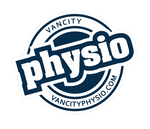Traumatic Brain Injury (TBI) can be a life-altering event, impacting not only the individual's physical health but also their emotional well-being. The journey to recovery often involves various therapeutic approaches, with physiotherapy playing a pivotal role. In this blog, we will explore the significance of physiotherapy in the rehabilitation process after a traumatic brain injury and shed light on the different techniques and exercises that aid in the recovery journey.
Understanding Traumatic Brain Injury
Before delving into the world of physiotherapy, it's crucial to grasp the nature of traumatic brain injuries. TBIs occur due to a sudden blow or jolt to the head, disrupting the normal brain function. This can result from accidents, falls, sports injuries, or assaults. The severity of TBIs varies, and so do the challenges faced during the recovery process.
The Role of Physiotherapy
Physiotherapy post-TBI focuses on improving mobility, balance, and overall physical function. Physiotherapists employ a holistic approach, tailoring their interventions to meet the specific needs of the individual. Let's explore some key aspects of physiotherapy in TBI rehabilitation:
1. Assessment and Goal Setting: Physiotherapists conduct a thorough assessment to understand the patient's limitations. Goals are then set collaboratively, outlining what the individual aims to achieve through physiotherapy.
2. Mobility Exercises: A range of motion exercises and mobility training help in enhancing flexibility and muscle strength. These exercises are designed to prevent muscle atrophy and joint stiffness, common issues after a period of immobility.
3. Balance and Coordination Training: TBIs often affect balance and coordination. Physiotherapists use various techniques, including balance exercises and proprioception training, to improve these skills, reducing the risk of falls.
4. Gait Training: Regaining the ability to walk safely and confidently is a significant milestone in TBI recovery. Physiotherapists work on gait training, focusing on proper posture, step length, and stability.
5. Pain Management: Chronic pain is a common challenge post-TBI. Physiotherapy includes pain management techniques such as manual therapy, heat therapy, and therapeutic exercises to alleviate discomfort.
The Importance of a Supportive Environment
Apart from the physical aspects, a supportive environment is crucial for the success of physiotherapy. Family and friends play a vital role in motivating and encouraging the individual during their rehabilitation journey. Emotional support, coupled with professional therapy, creates a conducive atmosphere for healing.
Conclusion
Recovery after a traumatic brain injury is a gradual process that requires patience, dedication, and the right interventions. Physiotherapy, with its diverse techniques and tailored exercises, empowers individuals to regain their independence and improve their quality of life. With the support of skilled physiotherapists and a strong support network, individuals can navigate the challenges of TBI and work towards a fulfilling and active life.
If you or someone you know is on this journey, please call us at 604-398-5584 to have one of our qualified Physiotherapists help you on the road to recovery.

The Road to Recovery: Physiotherapy After Traumatic Brain Injury

Ranko Vukovic
Registered Physiotherapist MPT, BHK
Ranko is a registered physiotherapist (RPT) with the College of Physiotherapists of British Columbia and a member of the Canadian Physiotherapy Association. He combines expertise in kinesiology, functional movement, TMJ and orofacial pain (jaw pain), dry needling, and Shockwave Therapy. Ranko is passionate about helping clients achieve their fitness and rehabilitation goals.
